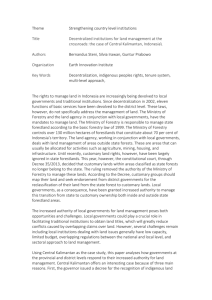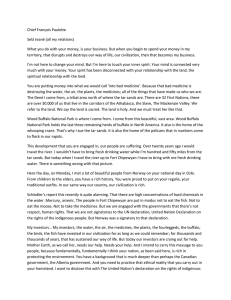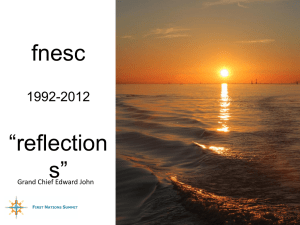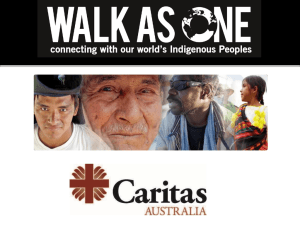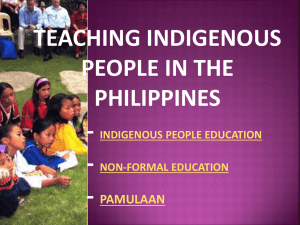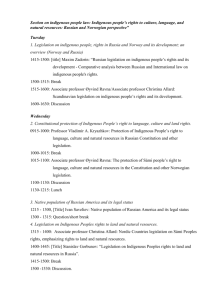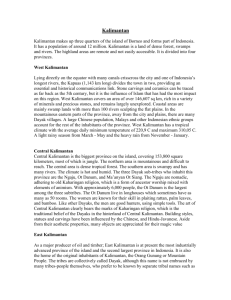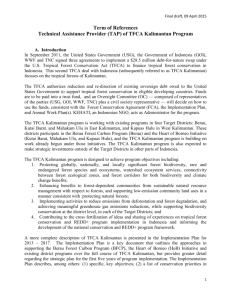File
advertisement
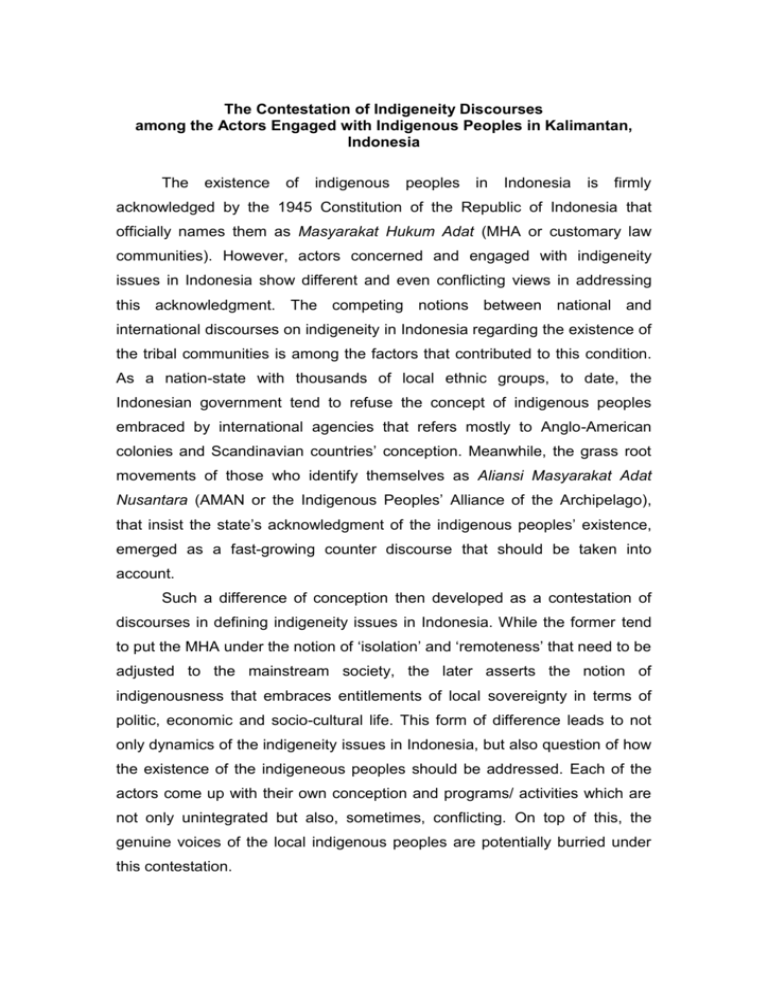
The Contestation of Indigeneity Discourses among the Actors Engaged with Indigenous Peoples in Kalimantan, Indonesia The existence of indigenous peoples in Indonesia is firmly acknowledged by the 1945 Constitution of the Republic of Indonesia that officially names them as Masyarakat Hukum Adat (MHA or customary law communities). However, actors concerned and engaged with indigeneity issues in Indonesia show different and even conflicting views in addressing this acknowledgment. The competing notions between national and international discourses on indigeneity in Indonesia regarding the existence of the tribal communities is among the factors that contributed to this condition. As a nation-state with thousands of local ethnic groups, to date, the Indonesian government tend to refuse the concept of indigenous peoples embraced by international agencies that refers mostly to Anglo-American colonies and Scandinavian countries’ conception. Meanwhile, the grass root movements of those who identify themselves as Aliansi Masyarakat Adat Nusantara (AMAN or the Indigenous Peoples’ Alliance of the Archipelago), that insist the state’s acknowledgment of the indigenous peoples’ existence, emerged as a fast-growing counter discourse that should be taken into account. Such a difference of conception then developed as a contestation of discourses in defining indigeneity issues in Indonesia. While the former tend to put the MHA under the notion of ‘isolation’ and ‘remoteness’ that need to be adjusted to the mainstream society, the later asserts the notion of indigenousness that embraces entitlements of local sovereignty in terms of politic, economic and socio-cultural life. This form of difference leads to not only dynamics of the indigeneity issues in Indonesia, but also question of how the existence of the indigeneous peoples should be addressed. Each of the actors come up with their own conception and programs/ activities which are not only unintegrated but also, sometimes, conflicting. On top of this, the genuine voices of the local indigenous peoples are potentially burried under this contestation. It is interesting then to bring this issue to a local context of a region in Indonesia. Kalimantan seems to be a perfect place to do this since there can be found the convergence of three main components of this issue: community groups identified as indigenous peoples, development and activism. While facing the development challenges, the indigenous peoples living there should deal with actors who come up with their different interests and missions. Based on this condition, this inquiry will be mainly focused on answering the question of ‘how does the contestation of indigeneity discourses in Indonesia affects programs or activities of the actors engaged with indigenous peoples in Kalimantan?’. Regarding this main concern, the study will be addressing several issues: 1) who are the actors intensively engaged with the indigenous peoples in Kalimantan?; 2) how does each of the actors conceive the indigenous peoples and how does it affects their programs/ activities?; 3) how does the indigenous peoples in Kalimantan conceive themselves and how do they respond to the programs/ activities of the actors engaged with them?; 4) how do the indigenous peoples in Kalimantan and the actors enganged with them respond to the discourses of indigeneity in Indonesia. This inquiry is aimed firstly at exploring more deeply, regarding the dominant national-international discourses, the local discourse of indigeneity in Kalimantan. Secondly, this inquiry is directed to formulate a map of activisms regarding indigeneity issues in Kalimantan. Thirdly, through this inquiry, the roots of differences or conflicts among the actors are attempted to be well-explained. Finally, this inqury expectedly would contribute to a problem solving regarding indigeneity issues in Kalimantan.




